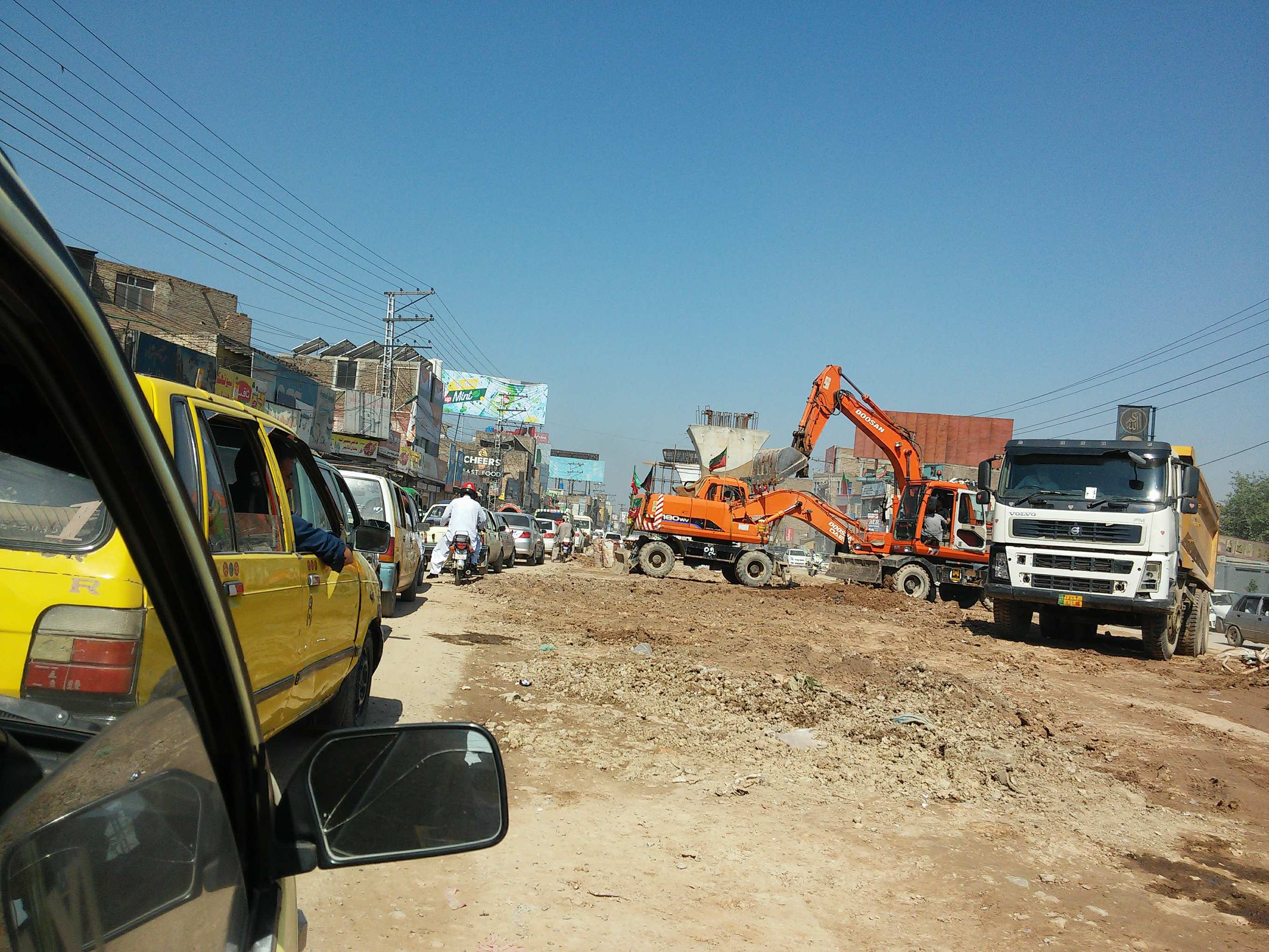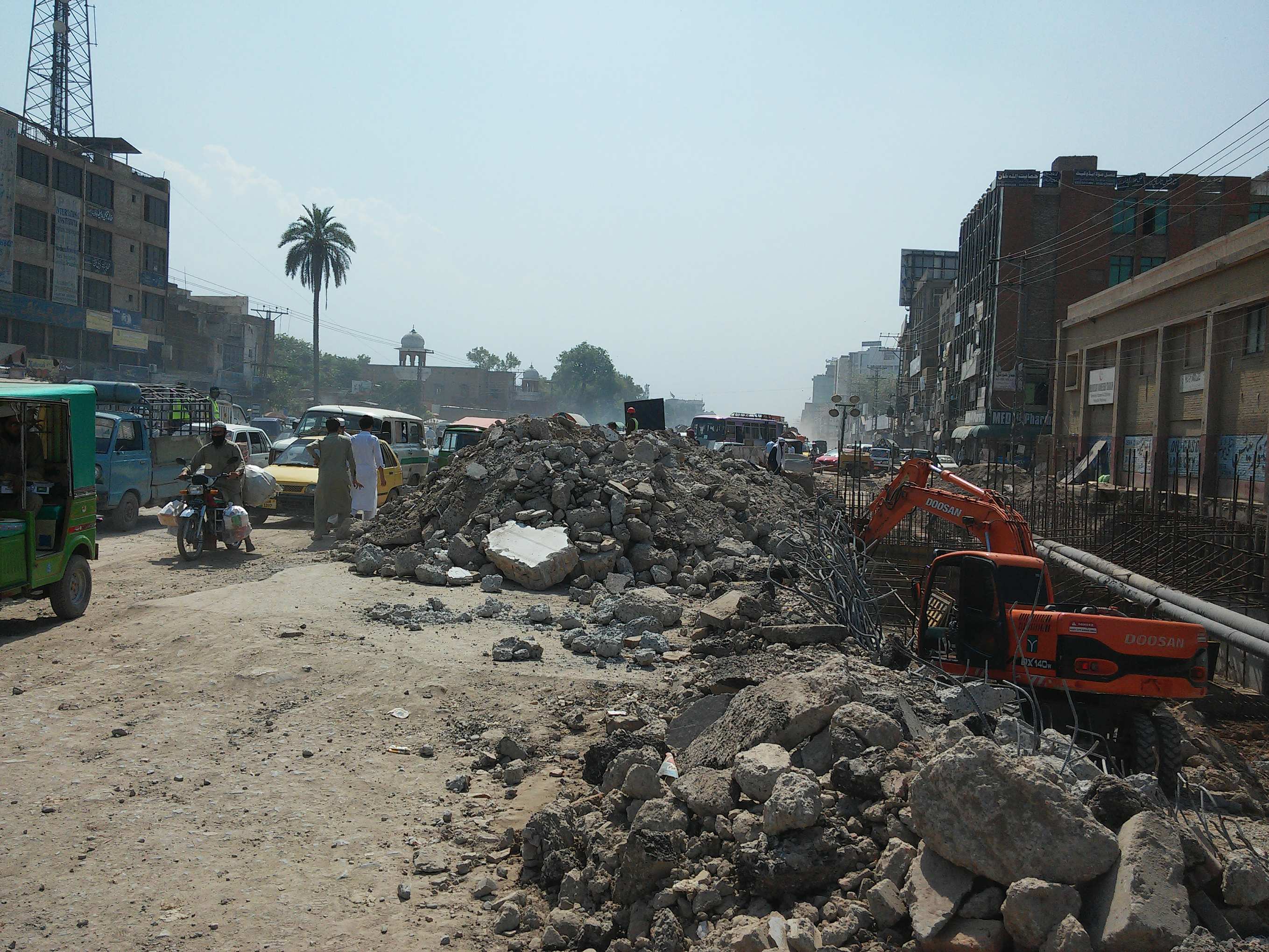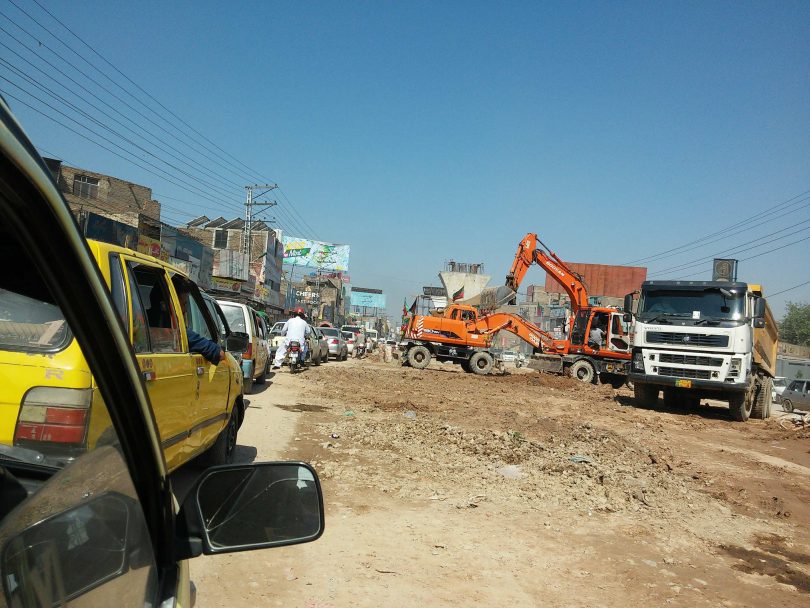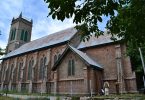With assistance from Marx Bär, Ikram Musazai & Penpusher Khan from The University of Peshawar.

Photo by Marx Bär.
Commuters in Peshawar say the construction of a new bus lane has created congestion, air pollution and significant health issues.
Peshawar Development Authority (PDA) has created the Bus Rapid Transit (BRT) system TransPeshwar to meet the growing needs of Peshawar’s population which has reached nearly 2 million.
PDA expects about 500,000 passengers will use the BRT on a daily basis once the construction has been completed.
The project was supposed to be finished by late April, however the main financier Asia Development Bank has hinted that the infrastructure may not be completed until early October.
Local cab driver Zahir, who has been driving in Peshawar for 17 year, travels along the BRT construction route several times a day and says the construction has forced him to abandon this trip on several occasions.
“Before the BRT started, it took us 20 minutes to cover 15km but after the construction it has been taking us two to three hours,” Zahir said.
Zahir says the “dust and smoke” has caused consistent coughing and flu like symptoms that have forced him to self medicate. He says he cannot afford to visit a doctor.

Photo by Marx Bär.
Rashid Ali, a local engineer has praised the idea of the BRT, but suggests the government needs to accelerate the construction work and provide alternate routes for the public.
Ali says his travel times have increased from around 20 minutes to nearly 2 hours.
However he says he still believes the BRT will improve Peshawar public transport system in the long run.
“BRT is a newer, faster, facilitative and environmentally friendly service,” Ali said.
There is currently no public transit options in Peshawar city. The construction of BRT aims to alleviate transport issues that commuters face, but those working in the industry don’t believe it’ll work.
Jamroz Khan, a bus driver who also travels along the route daily, says he “cannot hear a single horn” due to the loud noises from the building and also suffers from “mental torture due to noises”.
“[The BRT also] caused me pain in my feet and back due to too much using brakes and clutch,” Khan said.
“I am also suffering from lung pain due to dust and pollution.”
Khan, who has driven for 15 years, says while the project will be good for the public, he fears the BRT will result in job losses.
“Our vehicles will no longer be of use and there is no alternative jobs for us which will lead to unemployment, ” Khan says.
“We are not able to start any other business as we are in this profession since the last two decades.”
Locals have suggested that in order to eradicate the heavy traffic during the construction phase, the government should create a gap in the timing of the offices, schools and universities so that the public do not have to flow to the road at the same time.








[…] http://thecityjournal.net/reporting-from-pakistan/locals-livelihoods-odds-new-government-transport-c… […]